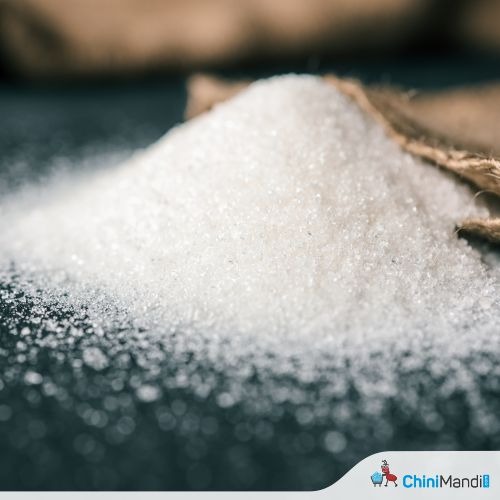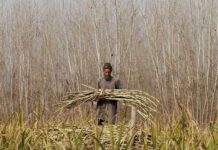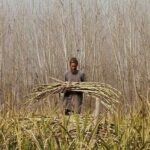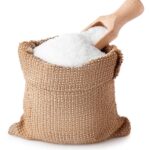Islamabad: The federal government on Friday acknowledged that sugar prices have risen sharply, reaching nearly (PKR) Rs 190 per kilogram in most cities. To address the shortage and stabilize the market, it has now decided to import 500,000 metric tons of sugar, reports The Express Tribune.
The Ministry of Planning, Development and Special Initiatives issued a statement confirming the surge in prices following a meeting of the National Price Monitoring Committee (NPMC). Federal Minister for Planning Ahsan Iqbal chaired the meeting, which focused on inflation trends and price controls across the country.
“Sugar prices have surged, reaching nearly Rs190 per kilogram in most cities,” the ministry noted. Separately, data from the Pakistan Bureau of Statistics (PBS) revealed that maximum sugar prices have gone up to Rs196 per kilogram.
The price spike followed the government’s earlier decision to allow the export of 765,000 metric tons of sugar, based on claims of surplus stock. At the time of export, sugar was priced at Rs140 per kilogram. Since then, the rate has risen by Rs56 per kilogram — an increase of 40 percent.
The Planning Ministry also reported a decrease in sugar production this year, with output falling to 5.8 million tons from 6.8 million tons the previous year. In response, the Ministry of Food has initiated the process of importing half a million tons of sugar to help bring prices under control.
During the meeting, officials noted that the prices of several key items — including LPG, bananas, mustard oil, chickpeas, and moong dal, have declined. The PBS also reported that the overall inflation rate for fiscal year 2024–25 stands at 4.5%, a sharp drop from 23.4% recorded in the previous year.
Minister Ahsan Iqbal described this as the lowest inflation rate in nine years and credited government policies and better supply management for the improvement.
Food inflation in urban areas was recorded at 4.2%, down from 6.2% the year before. However, supply chain disruptions in Sindh — caused by highway closures — were noted as a reason for some localized price instability.
The minister stressed the importance of using the Price Scorecard system for better market monitoring. He pointed out that while Khyber Pakhtunkhwa’s chief secretary accessed the system 114 times, Sindh did so only 10 times, Punjab 6 times, and Balochistan not at all. Among deputy commissioners, Islamabad accessed it 27 times, Karachi 6 times, and Quetta just 4 times.
Concerned over the lack of use, the Minister instructed the PBS to send monthly login reports to all chief secretaries. He also directed deputy commissioners to regularly compare wholesale and retail prices and take corrective steps when needed. Provincial governments were urged to actively monitor and support this system.
In a previous NPMC meeting, it was agreed that the Competition Commission of Pakistan (CCP) would work with the food ministry and provincial governments to determine fair profit margins between wholesale and retail prices. However, the CCP later clarified that any collective price-setting mechanism is inconsistent with its legal role and cannot be implemented.
Provincial governments had also been instructed to improve price monitoring systems. A PBS delegation had visited all provinces to brief stakeholders on using the Decision Support System for Inflation (DSSI) as a tool for tracking prices. Provincial authorities have once again been urged to enhance usage of the DSSI within their jurisdictions.
















